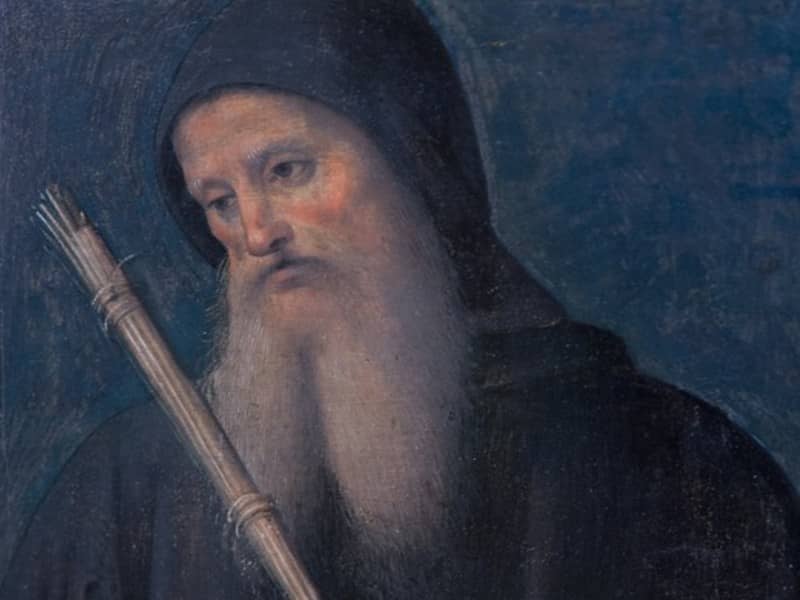I am an orthodox Catholic, inspired by ritual, enlivened by tradition, liberated by obedience to the pope. And I'm charismatic to the bone.
The language of my childhood was the heady, fiery, rapturous language of Pentecostal worship. My parents, born again shortly before I was born, took me to revivals and camp meetings and healing services, immersed me in the Scriptures, and taught me how to pray. It was the most natural thing in the world: If there's something you need, ask Jesus. We gathered in worship in the knowledge that "wherever two or more gather together in my name, there will I be in the midst of them." Jesus was as much a part of our family as any of us; in fact, he was its center, since everything that happened to us came from him. We lived in a state of total dependence, but we never felt dependent. We felt grateful: Here was Jesus in our midst, taking our cares on his shoulders, leading us home.
But when, after several years of lukewarm devotion to Christianity (in the way of many teenagers), I began to think again about Jesus, I didn't know where to begin. In my senior year of high school, we happened to read James Joyce in our English class. I loved his novels and stories, but there were some very strange words in them--chasuble, penitence, monsignor, transubstantiation--and I asked a Catholic friend what they all meant. She tried to explain, but I still wasn't getting it, so she asked me to come to Mass with her so I could get a firsthand view.
Cautiously, I agreed. The next Sunday, I found myself kneeling before a stone table, a mother-of-pearl icon, and a big gold tabernacle, my mind in chaos in the midst of this strange ceremony ... when, suddenly, there was Jesus. A bell rang, and it was like meeting an old friend--except now, instead of being only in my heart and in the Scriptures, there he was in front of our eyes on that table, being cradled in the hands of the priest, being given, in the flesh, to each person who approached him. I don't know how to explain it, except to say that suddenly I knew without a doubt that in that little bit of bread was the same man I'd known so long ago, the same man on whom my family had depended, who had kept on bearing our pain and giving us new life.
Soon after, I enrolled in the course of instruction for those who wanted to be received into the Catholic Church. The decision was easy: I'd found Jesus again, and what else could I do but go where I'd found him? But I soon discovered that although this was the same Jesus, this was not at all the same approach. There was a whole new vocabulary--we were no longer treading on serpents and scorpions, but asking God for mercy; no longer speaking in tongues, but reciting litanies. Now there was not only Jesus' saving power and his promise of healing, but the power of our sinfulness and the reality of our guilt as well. Now we were asking a whole host of other characters--saints, angels, intercessors of every kind--to pray along with us to the Father.
What really kept me from being afraid of this daunting journey was Jesus himself, who in a strange way seemed to have taken my hand. Of course, the Catholic tradition has much to say about such a friendship. There are the words of St. Cyprian in Cardinal John Henry Newman's novel "Callista": "There is but one lover of souls ... and he loves each one of us, as though there was no one else to love." Christ became, the Council of Trent declared, our primus amicus, our first friend on the road to communion with others and with God.
But it was not Cardinal Newman or the Council of Trent that originally taught me about the friendship with Jesus that would so influence my Catholic piety. It was the Pentecostal tradition of my youth. My brothers and sisters in that tradition would surely not agree with my identifying the Body of Christ with the Catholic Church, along with many other things I have come to believe since my conversion. But in one way, I feel closer to them than ever before. Those intense appeals to Jesus we made in revivals and camp meetings assumed nothing less than his perfect presence, his always open ear and always reliable shoulder. And this was the key: It was not just some abstract divinity or historical figure we were counting on. It was a person.
Often in the history of the Catholic Church, people have seemed distant from the person of Christ, caught up instead in the rituals and traditions of an institution. This is how many non-Catholics still view the Church: lots of ceremony, lots of saints, but not much Jesus. Especially in the writings and the witness of Pope John Paul II, however, the Church has reasserted its ancient awareness that a person stands at its center--and not just any person, but the person who (as the Second Vatican Council put it) both reveals God to man and reveals man to himself. After all, what is at the center of the Mass but Jesus' body and blood?

